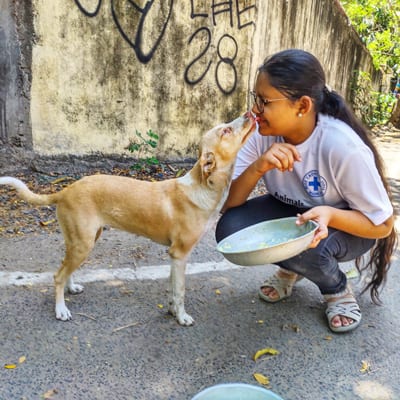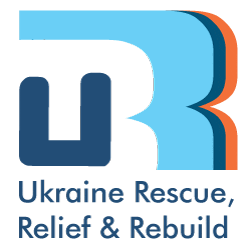
WellBeing International
WellBeing International (WBI) promotes the well-being of people, animals, and the environment. The organization seeks optimal well-being through collaborative engagement, education, direct care, and science.
Programs
WellBeing International offers six interrelated programs, and organization resources are leveraged to deliver impact across all programs and focus areas.
Animals in Conflict: a program to assist humans and animals in areas of war and ongoing conflict.
Ukraine Rescue, Relief & Rebuild (U3R)
WBI has built and remains committed to a coalition of local and international organizations to deliver rescue, relief, and rebuilding (U3Rs) to assist and support the beleaguered people of Ukraine. WBI continues to provide funding, website coverage, social media and news outreach, and continuing efforts to build a communication network for the future rebuilding effort in Ukraine. WBI has a range of global connections and disaster response experiences that will support the effective management of a consortium of disaster responders and the efficient deployment of resources.
A coalition of international organizations partnering with local groups provides valuable inputs to identify what assistance is needed and where. A consortium also offers a range of skills and capacities that can be deployed rapidly and effectively. By building a coalition of international and local organizations with different skill sets, the U3R can assist with various animal species and needs and support human caretakers.
The constantly changing nature of this war demands flexibility in establishing and recalibrating supply chains and relief delivery. Information gathering throughout the country facilitates rapid responses to changing local conditions. The coalition will work as a coordinated team to ensure that rescue, relief, and rebuilding services and supplies are delivered to the people and animals of Ukraine when and where needed.
Democratizing Information: a program providing a free, accessible digital repository, a virtual reservoir of reliable knowledge and information on the well-being of people, animals, and the environment.
WellBeing International Repository (WBISR)
The WellBeing International Studies Repository is a state-of-the-art digital library that hosts over 5,800 open-access documents on the well-being of people, animals, and the environment. Additionally, WBISR hosts the academic journal Animal Sentience. Since 2014, WBISR has been used over 3.5 million times by individuals from 232 countries and territories and 35,000 institutions without charge.

Animal Sentience is a program that enhances understanding of the topic, raises global awareness of its significance, and encourages decisions that lead to a humane and sustainable world.
WBI publishes under the editor-in-chief, Dr. Stevan Harnard, the journal Animal Sentience, an internationally recognized open access peer commentary academic journal that publishes peer-reviewed target articles on relevant topics. The journal is currently in its ninth year of publication.
Global Awareness is an overarching program that aims to identify and emphasize behavior change solutions targeted at a worldwide audience that enhances the well-being of people, animals, and the environment.
Focus areas: companion animals, Partner shelters, community outreach, Animals in research and testing, Farmed animals and land use, Climate, the UN, biodiversity, Wildlife, wild lands, and rewilding.
Feel Better: a program to provide trusted information targeted to individuals, enabling them to make better choices for themselves, their families and communities, including animals and the environment.
Focus areas: Health, World Happiness, One Health, enhancing individual well-being through nature and communities.
Animal Homelessness: a program to end dog homelessness worldwide by identifying and promoting the best dog management solutions.

The Global Dog Campaign: The main focus of the Global Dog Campaign is to develop and implement humane and effective dog management by generating accurate data, identifying successful local dog management programs, and documenting the impact of humane dog management techniques over time, focusing on longer-term impacts. Collaboration is needed with local, municipal, state, and national actors to include animal management and its connection to public health outcomes to be included in policy agendas. Funding strategies must also accompany actions taken at the various policy levels. Local stakeholders, including communities, shelters, local government, and organizations most likely implementing programs, should collaborate to ensure animal management programs stay in the policy and funding arenas to ensure projects are continuously funded, monitored, analyzed and linked to public health outcomes.
“A responsible caretaker of our world must safeguard people, animals, and the environment for each element is tightly connected and dependent on the well-being of the others.” “
~Andrew N. Rowan, President, WBI
Rick Bernthal, WBI Board Member
Organizational Information
- Website: wellbeingintl.org
- Tax number: 83-1593634
- 2023 Annual Report





